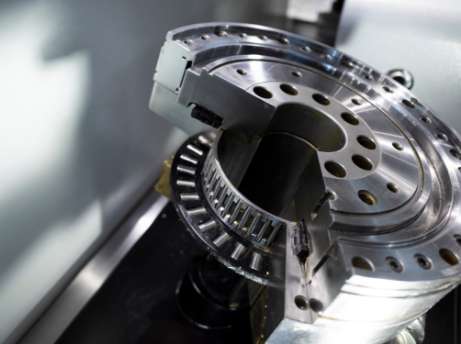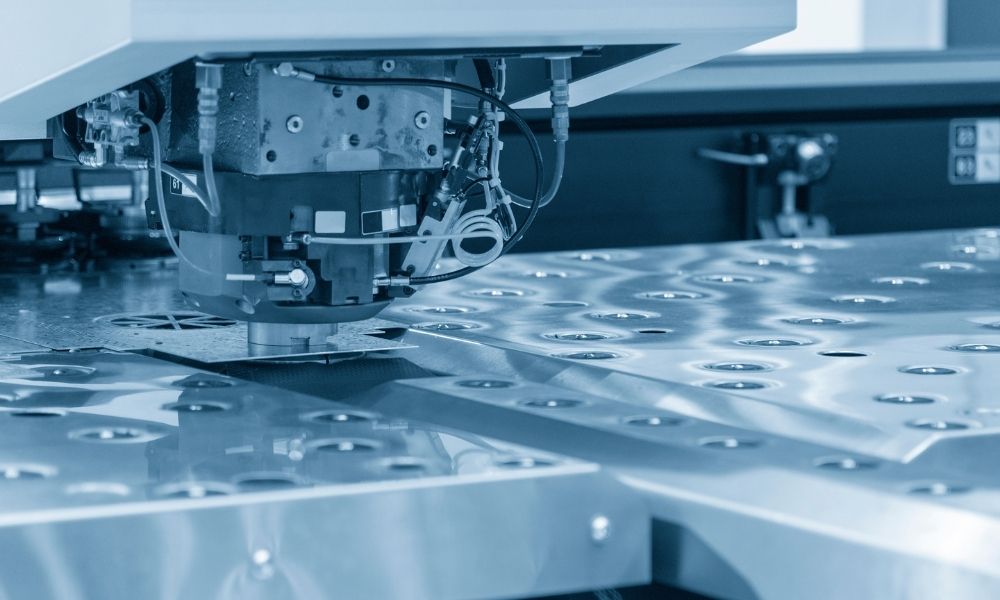Successfully Added
The product is added to your quote.

Servo motors are vital in many industrial processes, providing precise and accurate machinery control. Despite their importance, there is a chance of servo motor failure, resulting in costly downtime, repairs, and production losses. Understanding common causes of failure is crucial in preventing outages and ensuring the machinery operates smoothly and efficiently.
So, what is the most common cause of servo motor failure? We'll answer that question and review a whole range of reasons that servo motors fail, including:

Before discussing the causes of servo motor failure, reviewing the motors and their components would be helpful. Servo motors are self-contained electrical devices that use drive gears for precise movement. They can control positioning in two- and three-dimensional spaces for CNC machines and rotational velocity in grinding and milling machines.
While your application's complexity will decide your motor's final makeup, all servo motors contain at least three components:
Other parts like cables, windings, and bearings complement these components to keep your machinery moving.
Before the servo motor stops altogether, there are some signs of failure you can look for. Noises like chatter, shrieks, or growls often signal an impending failure. You can also use a megohmmeter to diagnose open or short circuits.
A good preventative maintenance program is the best way to avoid a servo motor failure. By tracking the service life of the various components, you can know when parts need maintenance or to be replaced before a failure occurs. Preventative maintenance also allows you to schedule repairs when downtime won't affect production.
Numerous factors, some easy to detect and some more challenging, contribute to motor failure. The most common reasons for a servo motor to fail include the following:
What is the most common cause of servo motor failure? Contamination. Oil, coolant, and debris can foul a servo motor, degrading bearings, windings, and other components, leading to many of the failures listed below.
You can prevent contamination by regularly inspecting and cleaning your servo motors. Sealing the motor windings and using a fully enclosed motor system also lessen the chances of contamination-related failures.
Growling or shrieking when your motor runs at high speeds indicates bearing failure. This can result from a variety of issues, including normal bearing wear. Other causes include improper installation or reinstallation of the servo motor, which can lead to misaligned bearings.
Contamination can also lead to premature wear. Routinely checking your bearings and replacing them as needed will help prevent these failures and improve the lifespan of your servo motor. You can also use motor-mounted vibration sensors for early detection of bearing issues.
Servo motor brakes often fail because of improper use. Most brakes are designed to keep a load in place when the motor is deactivated or shut down. Brake failure can occur if the brake is used for multiple e-stops or repetitive stopping.
Additionally, contamination can affect brake performance. You should always engage the brake after the motor has stopped to reduce the chances of such failures. If you need to stop the motor during operation, consider using a brake specially designed for that purpose.
Poor insulation systems, failure from power faults, improper repair, contamination, and age can all contribute to bad windings. Natural vibrations from the running motor can also degrade the copper coiling over time, leading to motor failure. If the servo motor is exposed to contaminants like water or coolant, you'll want to check the windings to ensure they're still in good condition. Correctly rewinding the coils as they degrade will help keep your motor running and extend its lifespan.
Servo motors rely on cables to send signals and power from the control system to the motor, and any issues with these wires can cause the motor to malfunction or even fail. Several issues can lead to cable failure, including wear and tear, corrosion, and physical damage from bending or twisting.
It's essential to inspect cables to prevent failure regularly. Replacing these wires before they fail can help avoid more costly repairs. High-quality cables designed for the specific application and environment can also help prevent these failures and ensure that your servo motors continue operating at peak performance.
Overheating is the downfall of a lot of equipment, including servo motors. High environmental temperatures, a blockage in the motor, and extended operating times can all lead to overheating. Even though it can be challenging to detect, overheating contributes to motor failure by damaging internal components or connected systems.
Many servo motors incorporate a failsafe that will trigger a shutdown when the temperature reaches a critical point. Although not always possible, operating them in temperature-controlled environments can also help prevent overheating. Proper ventilation and replacing old, worn parts that contribute to overheating can help avoid the excessive temperatures that lead to failures.
Servo motors rely on permanent magnets to produce the magnetic field that drives the motor's rotor, and any magnetization loss can significantly affect the motor's performance. Various factors, including high temperatures, excessive current, and mechanical stress, can cause demagnetization. Demagnetization can dramatically affect the motor's torque output and speed, leading to decreased performance and even complete failure.
You can prevent demagnetization by ensuring the motor runs within its specified temperature and current limits. Proper maintenance, such as regular cleaning and inspection of the motor and its components, can also help avoid demagnetization and ensure that your servo motors continue to work effectively.
Electrostatic discharge (ESD) is a sudden and brief electric current flow between objects with different electrical charges. ESD can cause motor failure by damaging the sensitive electronic components within the motor. Servo motors often have complex electronic circuitry and delicate sensors that even small amounts of electrostatic discharge can easily damage.
To prevent electrostatic discharge from damaging servo motors, it's vital to follow proper grounding procedures during installation and maintenance. Personnel should be trained to handle and discharge static electricity before touching the motor or its components. Antistatic materials during installation and maintenance can also help prevent ESD and protect the motor's sensitive electronic components.
Vibrations can cause stress on the motor's mechanical and electronic components, leading to damage and eventual failure. Various factors, including unbalanced loads, improper installation, and mechanical resonance, can cause vibrations.
To prevent vibration and potential failures, it's crucial to ensure that the motor is installed and supported correctly. This includes proper installation, mounting, and regular inspection and maintenance of the motor's components. Monitoring and analyzing the vibration levels of the motor can help detect potential issues before they cause damage or failure.
The complex electronic components within a servo motor can experience wear and tear over time, leading to decreased performance and eventual servo motor failure. Numerous factors, including temperature cycling, voltage fluctuations, and contaminant exposure, can lead to electronic component fatigue.
You must ensure the motor operates within its specified temperature and voltage limits to prevent electronic component fatigue. Proper maintenance, such as regular cleaning and inspection of the motor and its components, can also help prevent fatigue and ensure that the motor continues to operate effectively.
Servo motors rely on precise mechanical components to run correctly, and any issues with these components can cause motor failures. Causes of mechanical faults and failures can include wear and tear, misalignment, and insufficient lubrication.
You'll want to ensure the motor is installed and maintained correctly to prevent mechanical faults and failures. This includes regular inspection and maintenance of the mechanical components and proper alignment and lubrication. Additionally, using quality parts developed for the correct application and environment can help avoid mechanical failure and extend the motor's life.
A setup issue or loss of parameters can create positioning errors that lead to servo motor failure. They can also cause overloading, misaligned components, control signal, and electrical problems contributing to motor failure. To detect a setup issue or loss of parameters, go through your usual setup process to look for anomalies that need to be addressed.
You can prevent these issues by monitoring the system for irregularities and performing regular maintenance.

Despite your best efforts, servo motor failure is sometimes inevitable. When a motor does fail, you're left with a fundamental decision: do you repair or replace the motor? Repairs can be time-consuming, but a new purchase can be expensive. Answer the following questions to help decide which is your best option:
Comparing your answers to these questions can help you make the most efficient, cost-effective choice.
As a leading supplier of industrial automation replacement parts, Industrial Automation Co. is well-positioned to answer your questions about servo motor failures. Please read the questions below to learn more, and contact us if you need additional information.
Motor failure signs include erratic behavior, excessive noise, reduced performance, and overheating.
Yes, motor failures can be prevented by adequately configuring the servo motor parameters, using compatible components, correctly aligning the motor, calibrating the control signal, monitoring the system, and performing regular maintenance.
Maintenance tasks required to keep a servo motor in good working condition include cleaning, lubricating, inspecting electrical connections, checking for wear and tear, and replacing worn-out components.
To troubleshoot a servo motor that is not working correctly, you can check the electrical connections, inspect the motor for signs of wear and tear, check the control signal for accuracy and stability, and monitor the motor's temperature and feedback signals.
The typical lifespan of a servo motor depends on various factors, such as the quality of the motor, the operating conditions, and your maintenance practices. However, well-maintained motors can last for several years.

Industrial Automation Co. is the go-to supplier of industrial automation parts, including servo motors. We offer outstanding quality, competitive pricing, and industry-leading turnarounds. You can rely on us for the replacement components needed to run your operation. Order your servo motors today, and experience the difference Industrial Automation Co. makes.
Shop Servo Motors

